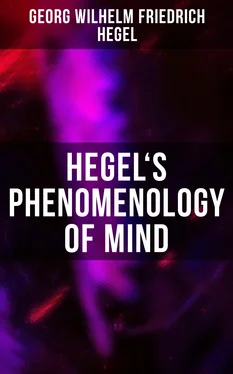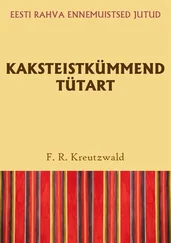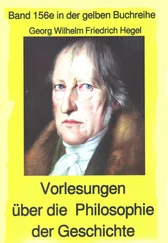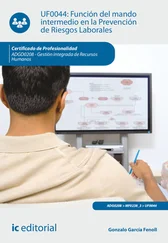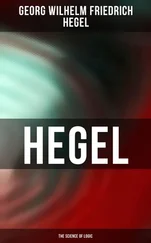The formalism which has been deprecated and despised by recent philosophy, and which has arisen once more in philosophy itself, will not disappear from science, even though its inadequacy is known and felt, till the knowledge of absolute reality has become quite clear as to what its own true nature consists in. Having in mind that the general idea of what is to be done, if it precedes the attempt to carry it out, facilitates the comprehension of this process, it is worth while to indicate here some rough idea of it, with the hope at the same time that this will give us the opportunity to set aside certain forms whose habitual presence is a hindrance in the way of speculative knowledge.
In my view-a view which the developed exposition of the system itself can alone justify-everything depends on grasping and expressing the ultimate truth not as Substance but as Subject as well. At the same time we must note that concrete substantiality implicates and involves the universal or the immediacy of knowledge itself, as well as that immediacy which is being, or immediacy qua object for knowledge. If the generation which heard God spoken of as the One Substance was shocked and revolted by such a characterization of his nature, the reason lay partly in the instinctive feeling that in such a conception self-consciousness was simply submerged, and not preserved. But partly, again, the opposite position, which maintains thinking to be merely subjective thinking, abstract universality as such, is exactly the same bare uniformity, is undifferentiated, unmoved substantiality. And even if, in the third place, thought combines with itself the being of substance, and conceives immediacy or intuition ( Anschauung ) as thinking, it is still a question whether this intellectual intuition does not fall back into that inert, abstract simplicity, and exhibit and expound reality itself in an unreal manner.
The living substance, further, is that being which is truly subject, or, what is the same thing, is truly realized and actual ( wirklich ) solely in the process of positing itself, or in mediating with its own self its transitions from one state or position to the opposite. As subject it is pure and simple negativity, and just on that account a process of splitting up what is simple and undifferentiated, a process of duplicating and setting factors in opposition, which [process] in turn is the negation of this indifferent diversity and of the opposition of factors it entails. True reality is merely this process of reinstating self-identity, of reflecting into its own self in and from its other, and is not an original and primal unity as such, not an immediate unity as such. It is the process of its own becoming, the circle which presupposes its end as its purpose, and has its end for its beginning; it becomes concrete and actual only by being carried out, and by the end it involves.
The life of God and divine intelligence, then, can, if we like, be spoken of as love disporting with itself; but this idea falls into edification, and even sinks into insipidity, if it lacks the seriousness, the suffering, the patience, and the labour of the negative. Per se the divine life is no doubt undisturbed identity and oneness with itself, which finds no serious obstacle in otherness and estrangement, and none in the surmounting of this estrangement. But this “per se” is abstract generality, where we abstract from its real nature, which consists in its being objective. to itself, conscious of itself on its own account ( für sich zu sein ); and where consequently we neglect altogether the self-movement which is the formal character of its activity. If the form is declared to correspond to the essence, it is just for that reason a misunderstanding to suppose that knowledge can be content with the “per se”, the essence, but can do without the form, that the absolute principle, or absolute intuition, makes the carrying out of the former, or the development of the latter, needless. Precisely because the form is as necessary to the essence as the essence to itself, absolute reality must not be conceived of and expressed as essence alone, i.e. as immediate substance, or as pure self-intuition of the Divine, but as form also, and with the entire wealth of the developed form. Only then is it grasped and expressed as really actual.
The truth is the whole. The whole, however, is merely the essential nature reaching its completeness through the process of its own development. Of the Absolute it must be said that it is essentially a result, that only at the end is it what it is in very truth; and just in that consists its nature, which is to be actual, subject, or self-becoming, self-development. Should it appear contradictory to say that the Absolute has to be conceived essentially as a result, a little consideration will set this appearance of contradiction in its true light. The beginning, the principle, or the Absolute, as at first or immediately expressed, is merely the universal. If we say “all animals”, that does not pass for zoology; for the same reason we see at once that the words absolute, divine, eternal, and so on do not express what is implied in them; and only mere words like these, in point of fact, express intuition as the immediate. Whatever is more than a word like that, even the mere transition to a proposition, is a form of mediation, contains a process towards another state from which we must return once more. It is this process of mediation, however, that is rejected with horror, as if absolute knowledge were being surrendered when more is made of mediation than merely the assertion that it is nothing absolute, and does not exist in the Absolute.
This horrified rejection of mediation, however, arises as a fact from want of acquaintance with its nature, and with the nature of absolute knowledge itself. For mediating is nothing but self-identity working itself out through an active self-directed process; or, in other words, it is reflection into self, the aspect in which the ego is for itself, objective to itself. It is pure negativity, or, reduced to its utmost abstraction, the process of bare and simple becoming. The ego, or becoming in general, this process of mediating, is, because of its being simple, just immediacy coming to be, and is immediacy itself. We misconceive therefore the nature of reason if we exclude reflection or mediation from ultimate truth., and do not take it to be a positive moment of the Absolute. It is reflection which constitutes truth the final result, and yet at the same time does away with the contrast between result and the process of arriving at it. For this process is likewise simple, and therefore not distinct from the form of truth, which consists in appearing as simple in the result; it is indeed just this restoration and return to simplicity. While the embryo is certainly, in itself, implicitly a human being, it is not so explicitly, it is not by itself a human being ( für sich ); man is explicitly man only in the form of developed and cultivated reason, which has made itself to be what it is implicitly. Its actual reality is first found here. But this result arrived at is itself simple immediacy; for it is self conscious freedom, which is at one with itself, and has not set aside the opposition it involves and left it there, but has made its account with it and become reconciled to it.
What has been said may also be expressed by saying that reason is purposive activity. The exaltation of so-called nature at the expense of thought misconceived, and more especially the rejection of external purposiveness, have brought the idea of purpose in general into disrepute. All the same, in the sense in which Aristotle, too, characterizes nature as purposive activity, purpose is the immediate, the undisturbed, the unmoved which is self-moving; as such it is subject. Its power of moving, taken abstractly, is its existence for itself, or pure negativity. The result is the same as the beginning solely because the beginning is purpose. Stated otherwise, what is actual and concrete is the same as its inner principle or notion simply because the immediate qua purpose contains within it the self or pure actuality. The realized purpose, or concrete actuality, is movement and development unfolded. But this very unrest is the self; and it is one and the same with that immediacy and simplicity characteristic of the beginning just for the reason that it is the result, and has returned upon itself-while this latter again is just the self, and the self is self-referring and self-relating identity and simplicity.
Читать дальше
